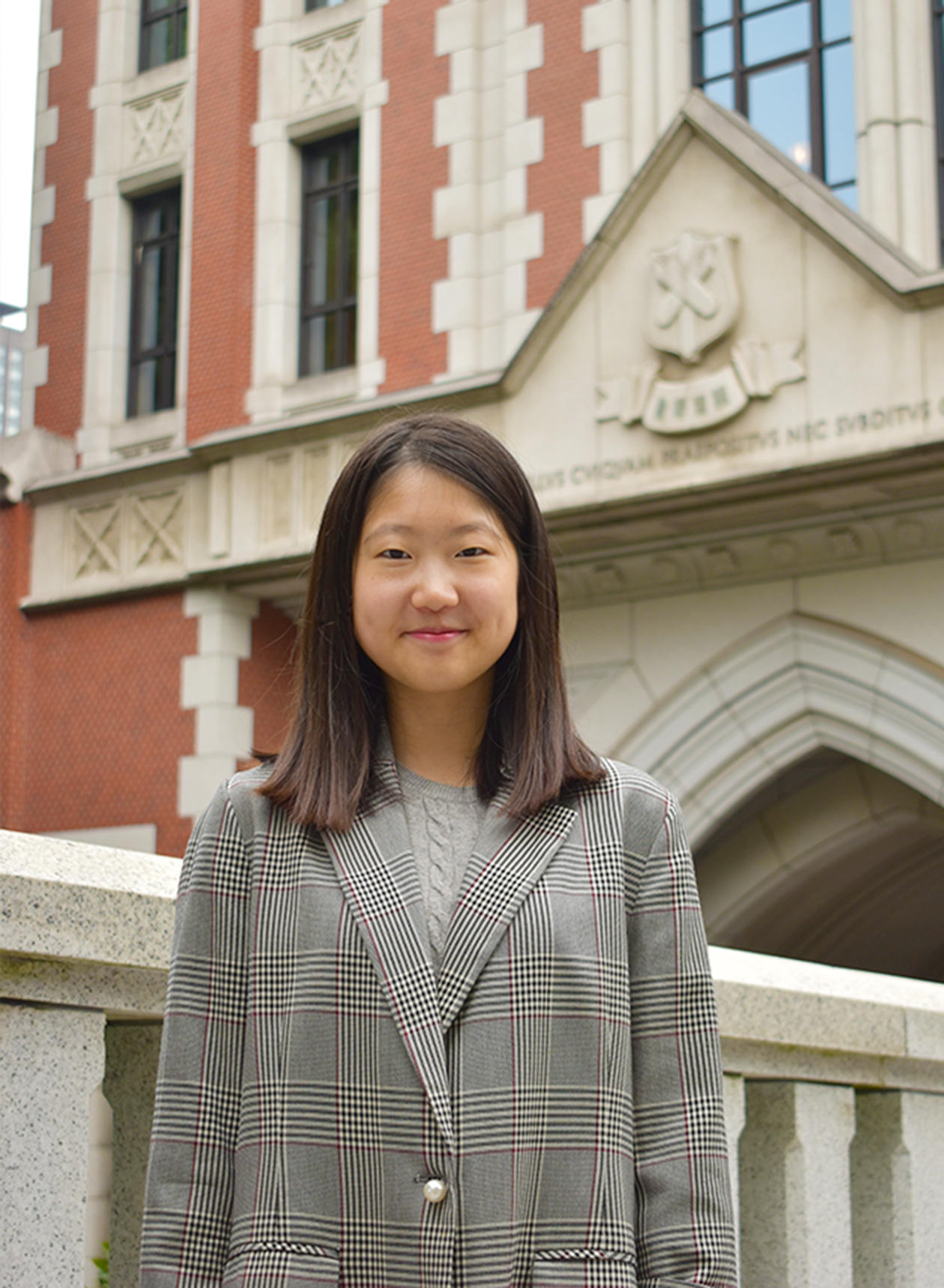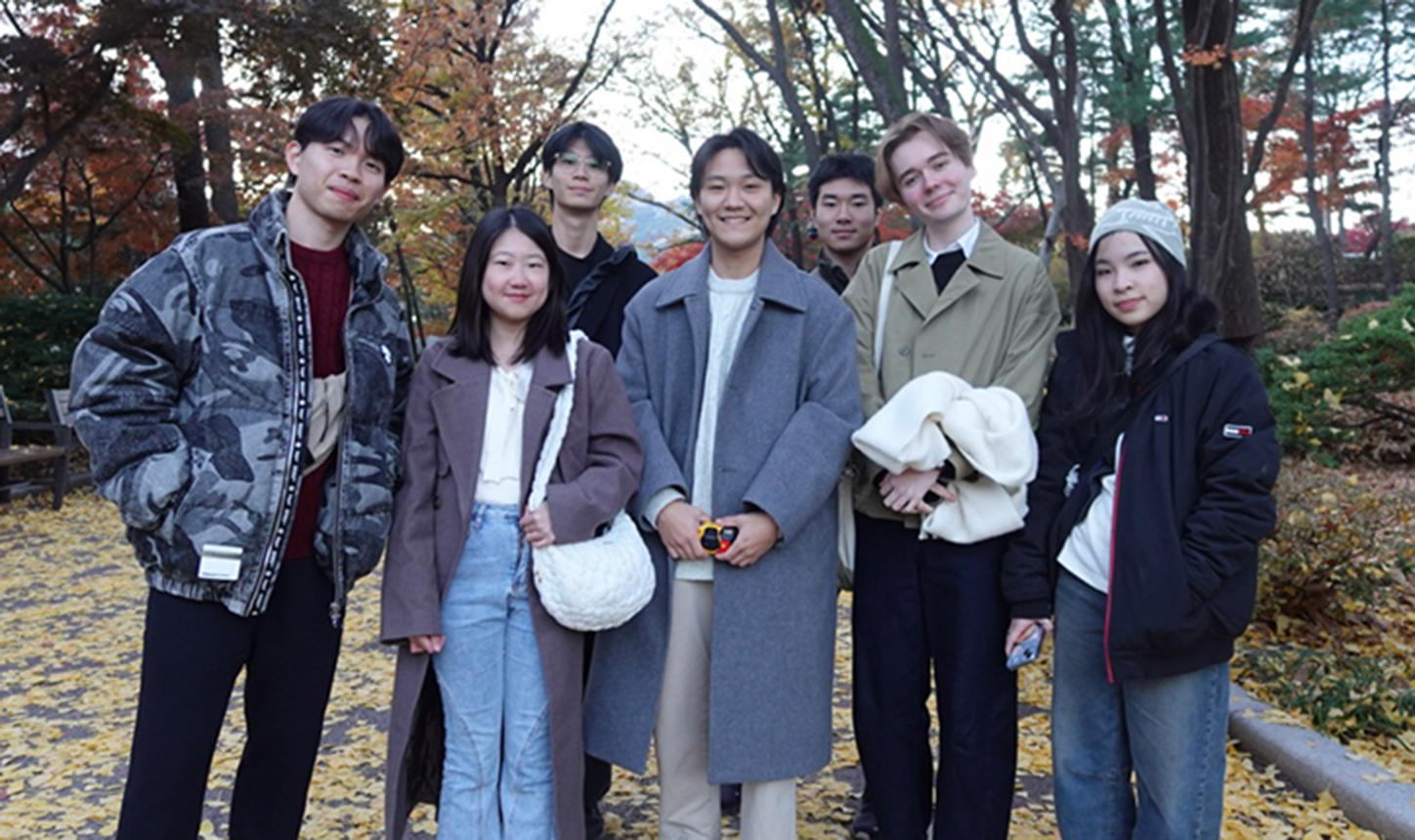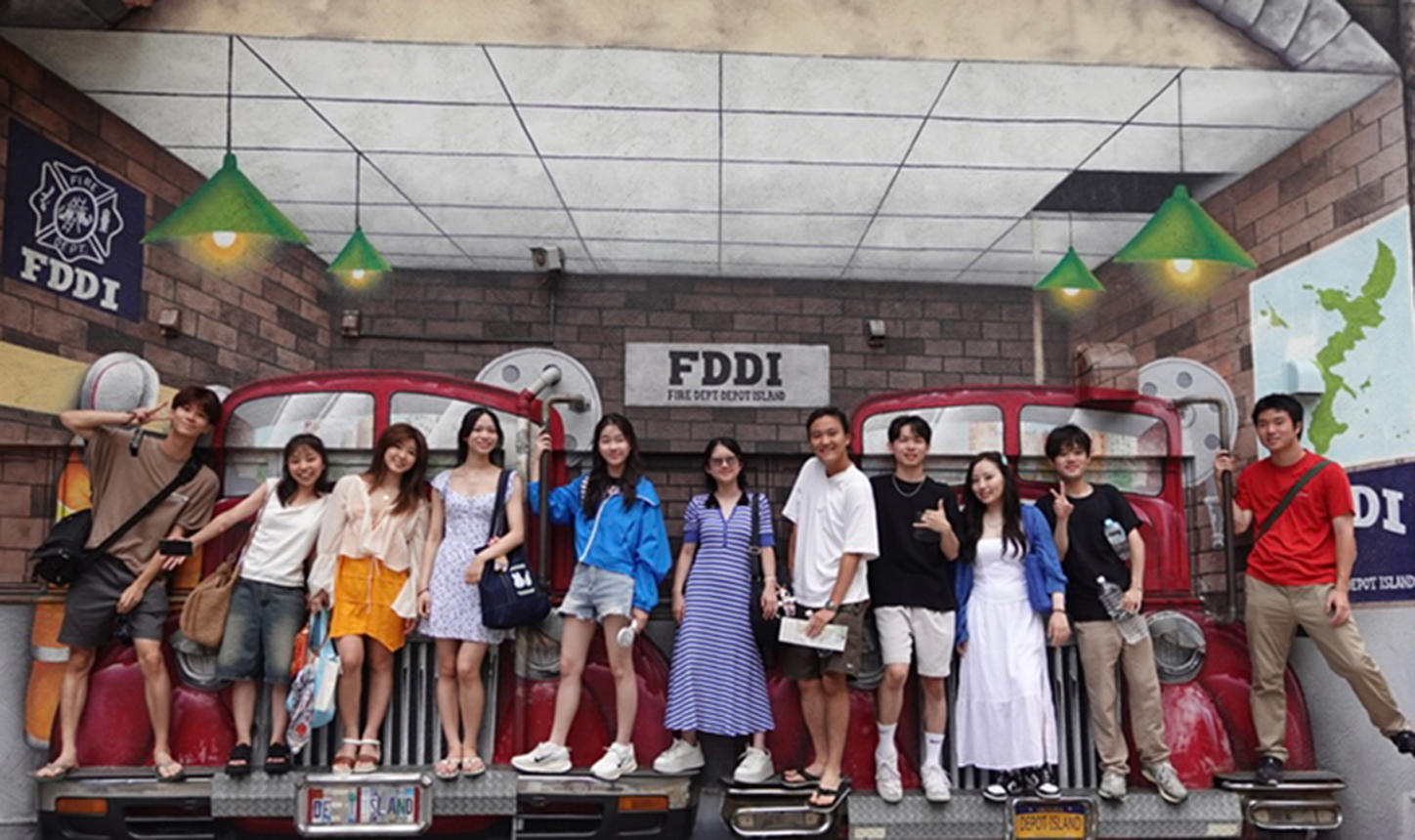Header start
- Home
- Admissions
- Undergraduate Admissions
- Admissions Procedures for the PEARL
-
PEARL Student Voices
PEARL Student Voices
Content start

Q1: You've achieved impressive fluency in English through local schooling in Taiwan, from kindergarten to high school. What motivated you, and what specific efforts did you make to reach such a high level?
If you have any advice for others in a similar environment, we'd love for you to share it as well.
Though I was raised in Taiwan, I always felt an inner longing to reach beyond my surroundings and connect with the wider world. From a young age, I was fascinated by the rhythm of international politics and the flow of the global economy, and I sensed that English could become the bridge that would carry me there. It was never just a subject in school for me; it was a doorway. While my roots remain deeply grounded in Taiwan, English has given me wings to see the world from a greater vantage point.
My journey with the language was woven into my daily life. I would sit with my mother and watch the news in English, listening carefully as she explained complex stories. I shadowed the various ways of speaking I heard in dramas and videos until the language felt natural on my tongue. And in quiet moments, I turned to books—Shakespeare’s words, the wisdom of the Bible, and other timeless works—which not only enriched my vocabulary but also shaped the way I think and write.
If I could share one piece of advice with others, it would be to learn with your heart, not only your mind. Language is not about perfection in grammar; it is about opening yourself to new voices, new cultures, and new ways of seeing the world. When you fall in love with what language can give you, fluency follows naturally.
Q2: You received several compelling offers from colleges both in and outside of Taiwan. What made you ultimately choose the PEARL program?
And now that you’ve spent two years in the program, what do you love most about it?
When I was deciding where to continue my studies, PEARL felt like the place where many paths met. Studying in the U.S. might have polished my English, and staying in Taiwan would have given me a steady path in law. But PEARL offered something rare: the chance to study economics in English while living in Tokyo, a city that vibrates with both tradition and global modernity. The history and reputation of Keio University, and its legacy in economics, gave me confidence that I would grow here not only as a student, but as a person.
Two years later, what I treasure most is the community. At PEARL, I am constantly surrounded by people who inspire me to push further and dream bigger. Professors are generous with their guidance, but even more touching is the kindness of my peers and seniors. When I struggled to find internships, my upperclassmen sent me opportunities, shared their experiences, and patiently revised my resume late into the night. That spirit of generosity is something I will carry with me forever.
I also cherish the friendships that have expanded my world. In between lectures, we talk about coffee, photography, or even stocks—interests I never imagined exploring back in high school when life was filled only with exams. These small conversations remind me that education is not only about knowledge, but about the joy of discovering life through the eyes of others.

Q3: PEARL emphasizes advanced economics while also offering a broad range of liberal arts classes. Could you share your favorite economics course and your favorite liberal arts course—and tell us why they stood out to you?
Among economics courses, I really enjoyed the microeconomics and statistics classes in my first year. The professors’ patience and warmth made difficult concepts feel less intimidating, and they created a space where asking questions felt like part of the learning journey. More recently, Professor Ota’s Asian Economic History course left a lasting impression. He used paintings and photographs as windows into the past, guiding us to see how history shaped economies across Japan, China, Korea, and Taiwan. As a Taiwanese student, I felt deeply engaged, often sharing reflections with him both in class and through weekly quizzes. What made the course so meaningful was that it was never just a lecture, but also a dialogue and a shared exploration.
As for liberal arts, the GIC course on American economic history and advertising music taught by Professors Yagyu and Ishii was unforgettable. It blended the story of America’s economic rise with the power of music in shaping consumer culture. The class showed me that economics does not live only in charts and graphs and history textbooks, but instead, it dances through art, sound, and society itself. It reminded me that to truly understand the economy, one must also listen to the cultural heartbeat behind it.
Q4: In today’s unstable and rapidly changing world, why do you believe studying economics in Japan is both important and beneficial?
You're more than welcome to share your intended specialization for your third and fourth years, as well as your dream career path after graduation.
To me, studying economics in Japan is like seeing the world from a new vantage point. Japan’s economy follows a path unlike that of many other countries, with its own rhythms of growth, unique policy approaches, and deep historical ties across Asia. Learning from this perspective allows us to question, compare, and truly understand economic theories in a more profound way. In PEARL, we not only study Japan itself, but also the web of relationships it shares with its neighbors. As a Taiwanese student, I feel especially drawn to the history and present day circumstances of Japan–Taiwan trade, and how it is shaped by both politics and economics.
This passion has guided me to join Professor Sasahara’s zemi (thesis seminar), where I will focus on international trade and the global economy. His passion for connecting data with the real world, and his vision for exploring the intersection of econometrics and global politics, inspire me deeply.
Looking ahead, Tokyo feels to me like a crossroads of possibility. It is a city where history and innovation coexist, and where opportunities abound for those who wish to think globally while working locally. I have not yet decided whether my path will lead directly into graduate studies or the professional business world, but I know my heart is drawn to finance and the global economy. What I dream of is building a career where I can contribute not only to my home, Taiwan, but also to the world we all share.

(This interview is from October 2025.)
Footer start
Navigation start


